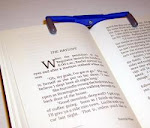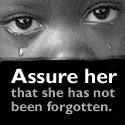There is nothing better than a thrilling page-turner! I have found just such a book in the latest book by Steven James, ‘The Bishop .’
.’
Here is the synopsis of this suspenseful novel:
The Game Is On.
FBI Special Agent Patrick Bowers’s cutting-edge skills are about to be pushed to the limit when a young woman is found brutally murdered in Washington DC. Her killers continue a spree of perfect crimes in the Northeast, but with nothing to link them to each other, Agent Bowers faces his most difficult case yet – even as his personal life begins to crumble around him.
The Bishop is a gripping adrenaline-laced story for readers who are tired of timid thrillers. Strap on your seat belt and get ready for a wild ride.
Here is the biography of this author:
Critically acclaimed author Steven James has written more than twenty books, including the bestselling thriller series THE BOWERS FILES. One of the nation’s most innovative storytellers, Steven developed his skills as a performer at Eastern Tennessee State University (MA in storytelling). James is a popular conference speaker and has taught writing and storytelling throughout North America, as well as in India, Kazakhstan, and South Africa. He lives in Tennessee with his wife and three daughters.
I was drawn to the main character, FBI detective Patrick Bowers, from page one. Although this is not the typical ‘Christian’ book, there were definitely spiritual elements to it, and there were characters who were Christ followers, including Denver Detective Cheyenne Warren, who was working on the latest case with Detective Warren.
The two main protagonists, Astrid and Brad, were also compelling – but they were 180 degrees away from Dr. Bowers. They were the personification of evil.
Patrick had suffered a tragedy in his life in the past year. The sections of the book featuring Patrick are written in the first person:
Christie and I had met in the spring, married in the fall, and only nine weeks after the wedding, she found the lump in her breast. She passed away before the one year anniversary of the day we met.
Tessa [Christie’s 17 year old daughter] had grown up without ever meeting her father, and, regrettably, things had been strained between us from the start. Then after Christie died, it only got worse.
In time, though, Tessa and I started to feel comfortable around each other, even close – until a few weeks ago when she stumbled across her mother’s diary and discovered that her biological father was alive and well and living off the grid in the mountains of Wyoming.
Her real father. (p. 28)
Mr. James obviously has done a great deal of research in the criminal justice system in the United States; his attention to detail is exemplary. Here is the description of how things are structured:
American law enforcement is set up like a plate of spaghetti, and the individual noodles overlap, wind together, and get entangled all the time. Depending on the type of crime and where it’s committed, you might have eight or nine state and federal law enforcement entities, intelligence agencies, military units, defense organizations, and justice department agencies all trying to investigate it.
And most likely not sharing information all that efficiently as they do.
Each of the armed forces has their own division of criminal forensic investigators; add in a helping of the ATF, DEA, CIA, FBI, NSA, and Federal Marshals, the Secret Service, US Customs and Border Protection, the Bureau of Diplomatic Security, even the Office of Inspector General for the United States Postal Service – as well as regional and state law enforcement, sheriff’s departments, and the six classified investigative agencies that don’t appear on any government books—
It’s mind-boggling. (p. 52)
Detective Bowers, as seems to be the case with the majority of law enforcement officials, has some cynicism when it comes to the subject of death:
A moment of tranquility, of grace, overcome by fear. The jittery race for survival. Like running from death.
Always running.
Always being chased.
I looked at the pictures again.
A race we all lose.
Like Calvin did.
Like Mollie Fischer.
Like so many victims I’ve seen over the years.
Their dead, staring eyes. Their quiet, gray lips.
And their shattered, grieving families. (p. 90)
Patrick’s stepdaughter Tessa is also extremely intelligent, and is able, at age 17, to hold her own against her PhD degreed stepfather. Here’s an exchange regarding evil, beginning with Patrick:
“I guess I think of it more like we’re all born with a shell of good around us, but it’s fractured – for everyone it is. We all know what’s right – even psychopaths who lack empathy are aware of their lack of compassion. I think all people know what’s good, even though, all too often, we’re attracted to what is not.”
“To the fractures.”
“Yes.”
She thought for a moment. “Are you saying we have an instinct for evil?”
“I wouldn’t put it that way. But we definitely have a weakness for it. I guess I’d maybe even say an inclination toward it.”
She peered at the forest. “Because sometimes we enjoy doing it.”
“Yes.” It was troubling to admit. “Sometimes we do.”
“And if we’re good, then we seal up the fractures? Is that what you’re saying?”
This is where things got a little sticky. “Actually, I don’t think we can seal them, Tessa. I don’t think anyone ever has. That’s why we have to be aware of --”
“Dr. Werjonic.”
“What?”
“What he said: ‘The road to the unthinkable is not paved by slight departures from your heart, but by tentative forays into it.” (p. 322)
I also loved this exchange between Patrick, Tessa, Detective Cheyenne Warren, and Lien-hua, an FBI detective on Patrick’s team (who, along with Cheyenne, had had a brief romance with him). Patrick opens very carefully the subject of differences between men and women:
“I’m just saying—“ By the looks on their faces I decided I’d better try a different tack. “However, you do know that some feminists might argue that masculine and feminine roles are simply social constructs and not physiological traits.”
“Then they’re ignoring the research.” Cheyenne shook her head. “But that’s no surprise. In one of the tragic ironies of the twentieth century, feminists never fought for women to become more feminine.”
“What do you mean?”
“Instead of celebrating what it means to be a woman, to be feminine, to be an empowered female, they fought for women to act and be treated more like men. That’s why I call them masculinists.”
“You call feminists masculinists?” I said.
“That’s right.”
She must have noticed the surprise on all of our faces because she went on to elaborate. “Yes. Masculinists. Because in their fight for more rights, they ended up devaluing what it means to be a woman and emulating the very things they criticized most in men – imperialism, identity confusion, militaristic propagandism, dehumanizing competition, careerism.”
Lien-hua, Tessa, and I glanced at each other. I had the sense that all of us were unsure what to say.
Cheyenne set down her chopsticks. “Women should be extended the same dignity, opportunity, and respect as men but shouldn’t be treated in an identical way; equality without uniformity. I want to be treated like a woman, not a pale imitation of a man.”
“You go, girl,” Tessa said.
Cheyenne took her up on the offer. “Women should never be ashamed to be feminine. Strength comes from conviction, not from acting like a man. Being feminine doesn’t mean I’m weak, it just means you’re proud to be a woman.” (p. 331)
Mr. James used Cheyenne’s character to speak the truth of Scripture on a regular basis. Here’s an exchange between her and Lien-hua, with Lien-hua describing to Cheyenne and Patrick a dangerous situation in which she found herself:
“Well, I was terrified, of course, and when the water was going over the head, I…” Lien-hua hesitated, and I think we could all tell how difficult it was for her to share her story. “Being raised in a Buddhist home, I wasn’t even sure if God existed, but I prayed, and someone arrived just in time to save me.” Her eyes found mine just as Cheyenne’s had a minute ago. “I’m still trying to sort out what all that means.”
“It means,” Cheyenne said, “that God still has big plans for you.”
“I hope you’re right.” (p. 335)
Tessa helped Patrick in some research on his case, dealing with evolution and natural selection, and she wrestled with some of her findings:
Through the years, evolutionist thinkers like Hobbes, Huxley, Freud, who all held unflinchingly to natural selection, had inexplicably encouraged people to rise above their natural instincts, a view shared by atheist proselytizer Richard Dawkins: “In our political and social life we are entitled to throw out Darwinism, to say we don’t want to live in a Darwinian world.”
Okay, but how, if we’re the result of genes, can we “throw out” being the result of our genes?
Talk about being illogical.
You can’t have it both ways – either we’re determined to be as we are by natural selection, or we’re not. And only if we’re not can we act in ways that are contrary to instinct. An animal constrained by instinct can’t suddenly decide to become something that instinct doesn’t allow it to be.
So, if natural selection really was natural and not somehow guided by God, the entire spectrum of human behavior would be natural. Instinctual. The good stuff and the bad stuff. All just part of being a highly evolved primate.
A species being true to itself.
People being true to their hearts.
To the fractures.
And the whole idea of “man’s inhumanity to man” would be a logical contradiction, because it would be impossible for a human to act in a nonhuman, or inhuman, way.
Chilling. (p. 405)
Another deep subject addressed in ‘The Bishop ’ is transhumanism, a subject with which I was, for the most part, unfamiliar. Nor was Margaret Wellington, the FI Executive Assistant Director:
’ is transhumanism, a subject with which I was, for the most part, unfamiliar. Nor was Margaret Wellington, the FI Executive Assistant Director:
Margaret wasn’t familiar with transhumanism, but it didn’t take her long online to discover that it was controversial since much of it involved not just augmentation but species advancement – through neuro-implants and gene therapy – creating humans with better eyesight, strength, or mental capabilities than the human race had ever developed on its own.
Through genetic manipulation, scientists would soon be able to give people the reflexes of a panther or the strength of a gorilla or the eyesight of a falcon. And by implanting chips into their brains, provide them the ability to remember nearly everything they learned or experienced. Because of transhumanism’s ultimate goal of improving the human race, transforming it even, into a superior species altogether, some people were calling it twenty-first-century eugenics.
Neuroscience. Nanotechnology.
Metacognition. (p. 413)
Cheyenne shared her faith one more time when she and Tessa were engaged in one of their favorite activities – a game of chess:
Tessa set the bishop on the black square beside her queen…. Tessa asked, “Did you ever meet one? I mean a person who never changed colors at all? Who had no duality?”
Detective Warren reflected on the question for a moment. “Just one.”
Tessa figured she was talking about the killer in Denver, Giovanni, who’s been the reason EAD Wellington had allowed her into the National Academy program – to help give her some distance from Denver, from the case. “Giovanni?” Tessa said.
But Cheyenne shook her head. “No. A carpenter. From Nazareth.” Considering the detective’s faith, the answer didn’t really surprise Tessa. She was quiet. “Yeah,” she said at last. My mom met him too. Before she died.” (p. 517)
This book ended with a cliffhanger. We will have to wait to see what happens next in Book Five in the Patrick Bowers Thriller series.
Being that this is a crime thriller, it is expected that there will be some blood and gore. There is some of that, but it could certainly have been more graphic. Being that it is published by Revell, a Christian publisher, I assume the violence was toned down; but be aware that are some excruciating details in these 520 pages.
It has been a while since I have read a book in this particular genre (crime/suspense). Life does not necessarily allow one to read a book in one sitting (especially one that is over 500 pages), but if I were able to, I would have read this book from start to finish without any break. I wanted to know what was going to happen next – the book continually drew me back. And, to me, that is the sign of a compelling book and a talented writer. This book is intelligently written – Mr. James makes you think, and that’s a good thing! And I love reading books where I am exposed to new ideas; ‘The Bishop ’ is chock full of them – whether we like some of them or not.
’ is chock full of them – whether we like some of them or not.
This is the first book I have read from Mr. James’ computer – but not my first encounter with him. I met him back in 2005 when he was brought in to the church I attended at the time – to teach children’s ministry leaders! He is also the author of several children’s books. When I realized that this Steven James is the same Steven James, I was surprised! This book is not for children!
This is the fourth Bower Files novel from Mr. James – the other three are ‘The Pawn ,’ ‘The Rook
,’ ‘The Rook ’ and ‘The Knight
’ and ‘The Knight .’ Can you detect a trend here?! The next book will be called ‘The Queen’ and will release in Summer 2011. With this theme in place, I think it is safe to assume that there will be at least two more books featuring Detective Bowers. Although this book stands alone, I am interested in reading the other books in the series. And I wouldn’t mind seeing these books makes into movies; they’re perfect for the big screen!
.’ Can you detect a trend here?! The next book will be called ‘The Queen’ and will release in Summer 2011. With this theme in place, I think it is safe to assume that there will be at least two more books featuring Detective Bowers. Although this book stands alone, I am interested in reading the other books in the series. And I wouldn’t mind seeing these books makes into movies; they’re perfect for the big screen!
You can order this book here .
.
Available August 2010 at your favorite bookseller from Revell, a division of Baker Publishing Group. This book was provided by Revell for review purposes.




























.jpg)







1 comment:
Believe it or not, I'd never read a thriller until The Bishop. It is so real and such a good book. I'd love to read his other books, now too.
Post a Comment